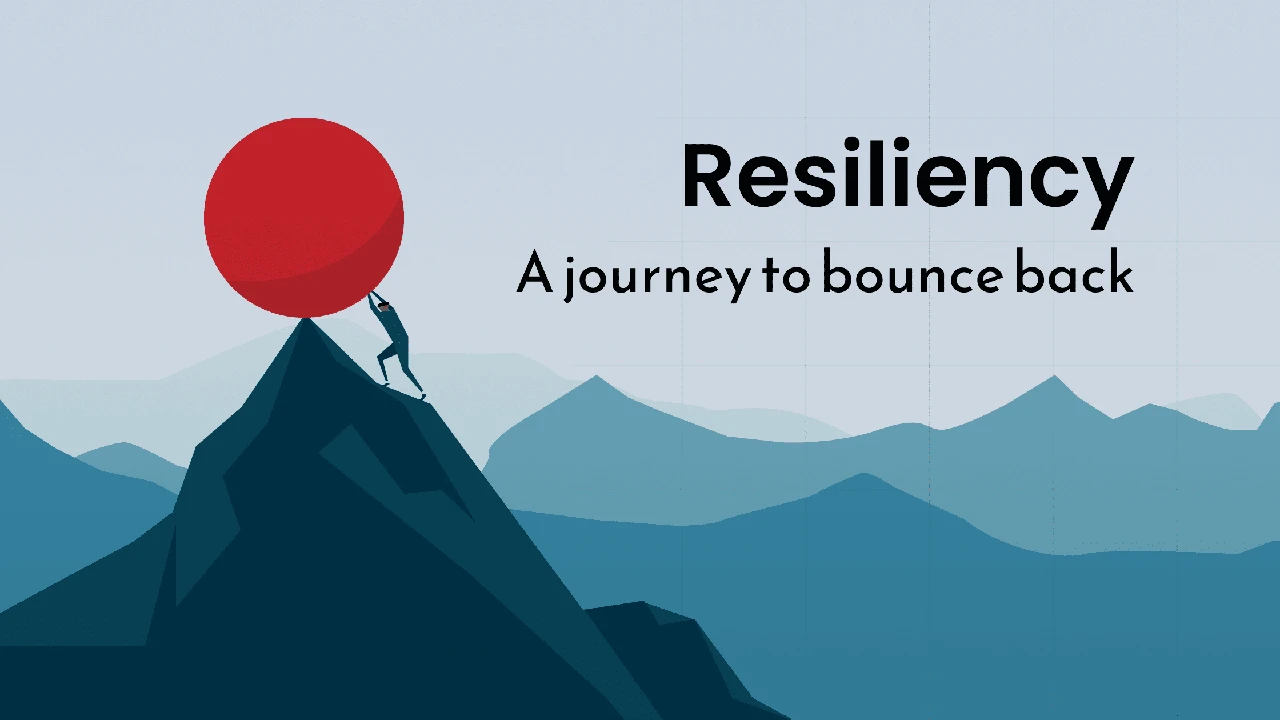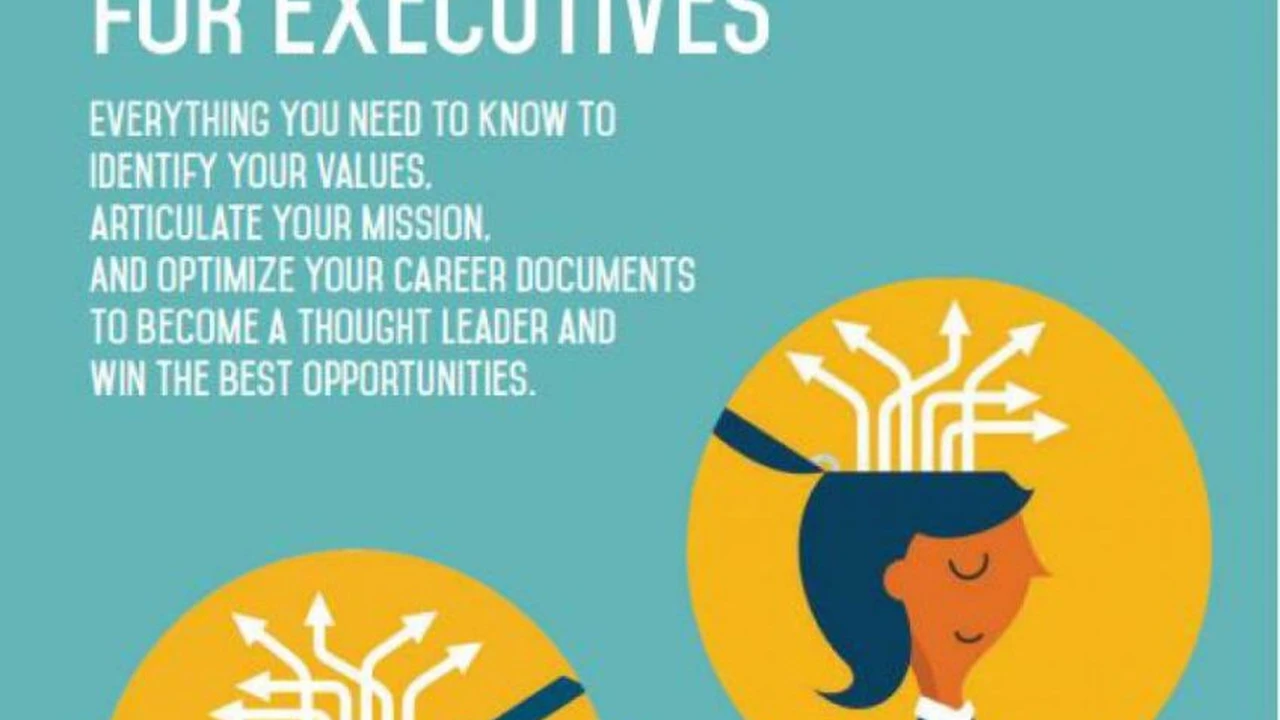Building Resilience in Your Professional Journey
Develop resilience to overcome challenges and setbacks in your professional career path.

Building Resilience in Your Professional Journey
Understanding Professional Resilience What It Means for Your Career
Hey there! Let's talk about something super important for anyone navigating the professional world: resilience. It's not just a buzzword; it's your secret weapon. Think about it – every career path has its bumps, right? Layoffs, project failures, difficult colleagues, missed promotions, or even just the daily grind can take a toll. Resilience is that incredible ability to bounce back, adapt, and even grow stronger from these challenges. It's about not letting setbacks define you, but rather using them as stepping stones. In today's fast-paced and often unpredictable work environment, cultivating resilience isn't just a nice-to-have; it's a must-have for long-term career success and personal well-being.
So, what exactly does professional resilience look like in action? It's the colleague who gets passed over for a promotion but uses the feedback to improve and lands an even better role next time. It's the team that sees a major project fail but learns from the mistakes and delivers an outstanding success on the next attempt. It's you, after a tough day, choosing to recharge and come back stronger tomorrow instead of letting negativity fester. It's about having a robust internal framework that allows you to absorb shocks, maintain perspective, and keep moving forward. This isn't about being emotionless or never feeling down; it's about how you respond to those feelings and situations.
Identifying Common Career Setbacks and Challenges
Let's be real, nobody's career is a straight line upwards. We all face challenges. Recognizing these common hurdles is the first step to building resilience against them. Here are some of the big ones:
- Job Loss or Layoffs: This is a huge one, often hitting hard on self-esteem and financial security. It's a common reality in many industries, especially with economic shifts or company restructuring.
- Project Failures: You pour your heart and soul into a project, and it doesn't pan out. This can be incredibly disheartening, leading to feelings of inadequacy or frustration.
- Difficult Colleagues or Bosses: Navigating toxic work environments or dealing with challenging personalities can drain your energy and impact your performance.
- Missed Promotions or Opportunities: When you work hard for something and don't get it, it's natural to feel disappointed, undervalued, or even resentful.
- Career Plateaus: Feeling stuck, uninspired, or like you're not progressing can lead to stagnation and a lack of motivation.
- Workplace Stress and Burnout: High demands, long hours, and constant pressure can lead to physical and mental exhaustion, impacting your ability to perform and enjoy your work.
- Negative Feedback: While constructive feedback is essential, receiving criticism, especially if it feels unfair or harsh, can be tough to process.
- Economic Downturns: Broader economic shifts can impact job security, industry growth, and overall career prospects, creating uncertainty.
Understanding that these are common experiences, not personal failures, is crucial. Everyone goes through them. The difference lies in how you react and recover.
Practical Strategies for Cultivating Professional Resilience
Alright, so how do we actually build this superpower? It's not something you're born with; it's a muscle you can strengthen. Here are some actionable strategies:
Embrace a Growth Mindset Learning from Every Experience
This is foundational. Instead of seeing challenges as insurmountable obstacles, view them as opportunities to learn and grow. Carol Dweck's concept of a 'growth mindset' is key here. When you have a growth mindset, you believe your abilities can be developed through dedication and hard work. A setback isn't a sign of failure; it's a data point, a chance to refine your approach. Ask yourself: 'What can I learn from this?' or 'How can I do better next time?' This shift in perspective is incredibly empowering.
Develop Strong Problem Solving Skills and Adaptability
Resilient individuals are excellent problem-solvers. When faced with a challenge, they don't dwell on the problem; they focus on solutions. This involves breaking down complex issues, brainstorming different approaches, and being willing to adapt your plans when things don't go as expected. Flexibility is your friend. The world changes, industries evolve, and so should your approach. Being rigid in your thinking or methods will only lead to frustration.
Build a Robust Support Network Professional and Personal Connections
You don't have to go it alone. A strong support system is invaluable. This includes mentors who can offer guidance, colleagues who understand your challenges, friends and family who provide emotional support, and even professional coaches. Having people you can confide in, brainstorm with, or just vent to, makes a huge difference. Regularly connect with your network, offer support in return, and don't be afraid to ask for help when you need it.
Prioritize Self Care and Well Being Mental and Physical Health
You can't pour from an empty cup. Neglecting your physical and mental health is a surefire way to deplete your resilience reserves. This means:
- Adequate Sleep: Non-negotiable. Your brain needs rest to process information and regulate emotions.
- Healthy Eating: Fuel your body with nutritious food.
- Regular Exercise: A fantastic stress reliever and mood booster.
- Mindfulness and Meditation: Even 10-15 minutes a day can significantly reduce stress and improve focus. Apps like Calm or Headspace (around $70/year for premium) offer guided meditations and sleep stories.
- Hobbies and Interests: Engage in activities outside of work that bring you joy and allow you to decompress.
Practice Emotional Regulation and Self Awareness
Resilience isn't about suppressing emotions; it's about understanding and managing them. When a setback occurs, acknowledge your feelings – disappointment, anger, frustration – but don't let them consume you. Techniques like journaling, talking to a trusted friend, or even just taking a few deep breaths can help. Self-awareness allows you to recognize your triggers and develop healthy coping mechanisms before emotions spiral out of control.
Set Realistic Goals and Celebrate Small Wins
Sometimes, big goals can feel overwhelming, especially after a setback. Break down your objectives into smaller, manageable steps. Each small win builds momentum and confidence, reinforcing your belief in your ability to achieve larger goals. Don't forget to acknowledge and celebrate these smaller achievements; they are crucial for maintaining motivation and a positive outlook.
Learn from Failure Not Dwell on It
Failure is an inevitable part of any journey. The key is to extract the lessons and move on. After a setback, take time to reflect: What went wrong? What could have been done differently? What did I learn about myself or the situation? Once you've gained insights, consciously choose to let go of the negative emotions associated with the failure and focus on applying the lessons learned to future endeavors. This isn't about ignoring the pain, but about transforming it into wisdom.
Tools and Resources for Enhancing Resilience
Beyond personal strategies, there are some fantastic tools and resources that can help you on your resilience journey. Think of these as your personal resilience toolkit:
Mindfulness and Meditation Apps for Stress Reduction
These apps are incredibly popular for a reason – they work! They offer guided meditations, breathing exercises, and sleep aids that can significantly reduce stress and improve mental clarity. This directly contributes to your ability to handle pressure and bounce back.
- Calm: One of the most popular, offering guided meditations, sleep stories, and masterclasses. It's great for beginners and experienced meditators. A premium subscription is typically around $70/year or $400 for a lifetime.
- Headspace: Similar to Calm, with a focus on making meditation accessible and fun. They have specific courses for stress, focus, and sleep. Premium subscription is usually around $70/year.
- Insight Timer: Offers a vast library of free guided meditations from thousands of teachers, plus premium courses. It's a great option if you want variety without a high upfront cost. Premium features (Insight Timer MemberPlus) are around $60/year.
Comparison: Calm and Headspace are very polished and structured, ideal for those who like a clear path. Insight Timer offers more variety and a strong free tier, perfect for exploration. All three are excellent for daily practice to build mental fortitude.
Journaling Apps and Tools for Self Reflection
Journaling is a powerful way to process thoughts, understand emotions, and track your progress. It helps you gain perspective during challenging times.
- Day One: A beautiful and feature-rich journaling app available on iOS, macOS, and Android. It allows for text, photos, audio, and location entries. It's fantastic for deep reflection. Premium subscription is about $35/year.
- Journey: A cross-platform journaling app (web, desktop, mobile) that's great for daily reflections and mood tracking. It's user-friendly and offers a clean interface. Premium features are around $30/year.
- Moleskine Smart Writing Set: If you prefer physical journaling but want digital backup, this set (around $200) allows you to write on special paper with a smart pen, and your notes are digitized in real-time. It combines the tactile experience with digital convenience.
Comparison: Day One is top-tier for Apple users, offering a rich experience. Journey is more universal. The Moleskine set is for those who love the feel of pen and paper but want the benefits of digital storage. Journaling helps you externalize your thoughts, making them less overwhelming and easier to analyze.
Productivity and Time Management Tools for Reducing Overwhelm
Feeling overwhelmed can quickly erode resilience. These tools help you manage your workload, prioritize tasks, and reduce stress.
- Todoist: A simple yet powerful task manager (free for basic, $48/year for Pro). It helps you organize tasks, set deadlines, and track progress. Knowing what you need to do and when reduces mental clutter.
- Asana: A comprehensive project management tool (free for small teams, paid tiers starting around $11/user/month). Great for managing complex projects and collaborating with teams, ensuring nothing falls through the cracks.
- Forest: Stay Focused: A unique app (one-time purchase around $4) that helps you stay focused by planting a virtual tree. If you leave the app, your tree dies. It's a fun way to gamify focus and reduce distractions.
Comparison: Todoist is excellent for personal task management. Asana is better for team-based project work. Forest is a niche but effective tool for combating digital distractions. By managing your time and tasks effectively, you reduce the likelihood of feeling swamped, which directly supports your resilience.
Online Learning Platforms for Skill Development and Adaptability
Staying relevant and continuously learning new skills is a huge part of professional resilience. It allows you to adapt to changing job markets and feel more confident in your abilities.
- Coursera: Offers courses, specializations, and degrees from top universities and companies. Many courses are free to audit, with paid certificates starting from $49. Great for in-depth learning.
- LinkedIn Learning: A vast library of video courses taught by industry experts, covering business, tech, and creative skills. Often included with LinkedIn Premium ($30/month). Excellent for practical, job-relevant skills.
- Udemy: Features a massive selection of courses, often at very affordable prices during sales (courses typically $10-$200). Good for specific, niche skills or quick learning.
Comparison: Coursera is strong for academic and professional certifications. LinkedIn Learning is excellent for practical, career-focused skills. Udemy offers a wide range of topics at competitive prices. Investing in your skills makes you more adaptable and less vulnerable to industry shifts, boosting your overall resilience.
Embracing the Journey Continuous Growth and Adaptation
Building resilience isn't a one-time fix; it's an ongoing process. Life and careers are dynamic, and new challenges will always emerge. The goal isn't to eliminate setbacks, but to develop the capacity to navigate them with grace and strength. Think of it as a lifelong commitment to your professional and personal well-being. Every challenge you overcome, every lesson you learn, adds another layer to your resilience. It's about embracing the journey, with all its ups and downs, and trusting in your ability to grow through it all. Keep learning, keep adapting, and keep bouncing back. You've got this!
:max_bytes(150000):strip_icc()/277019-baked-pork-chops-with-cream-of-mushroom-soup-DDMFS-beauty-4x3-BG-7505-5762b731cf30447d9cbbbbbf387beafa.jpg)





